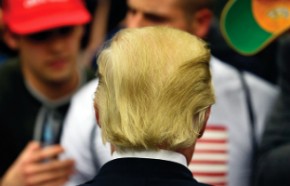Is Trump like Hitler? The value and limits of analogy

I am often asked whether the current American political climate can be compared to that of Germany in the 1930s. I suspect I am asked this question because I was born and raised in postwar Germany and because I head an institute whose mission it is to address the legacy of the Holocaust and issues of social justice.
There is plenty in the current political rhetoric to cause concern: false promises accompanied by fearmongering; divisive rhetoric; speech designed to arouse national pride; references to excluding dispensable populations from the rights, resources, and aspirations that we all want to enjoy. Did not the Nazis promise to make Germany strong again, just as Donald Trump promises to make America great again? Did not Hitler in his speeches violate all accepted political decorum and get away with it, just as Trump does? Is not the popularity of Trump the result of his ability to play to the lowest common emotions, just as the Nazi leadership evoked and employed the gut feelings of fear and pride, victimization and virility, Volkswohl (welfare of the people) and hatred of the enemy?
I admit that these analogies are tempting. Yet they may not be altogether helpful. A scholarly colleague of mine, the child of Holocaust survivors, recently told me that when commentators take Nazism and Hitler as their point of departure, they lose credibility in his eyes. “Nothing,” he asserts, “can compare to what the Nazis did in Germany.”




